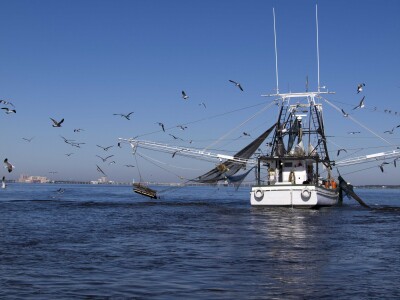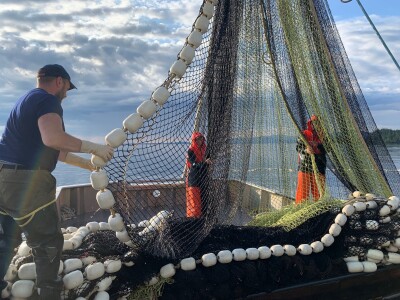My contribution to our June issue's cover story on groundfish is a look at how the West Coast trawl fleet is adapting to fishing under its catch share program, which began in 2011. The story offers some industry observations about what's working as well as challenges the trawl vessels face.
But the fishery's fixed gear vessels face challenges, too, and the hook and line and pot boats are still waiting for the Pacific Fishery Management Council to address their concerns, says Larry Collins, president of the San Francisco Community Fishing Association and president of the San Francisco Crab Boat Owners Association.
The crab boat association was among the plaintiffs who filed a 2010 lawsuit that sought to stop implementation of the catch shares program; last year a federal appeals court upheld a previous court ruling upholding the program.
"We were told as communities we'd be taken care of," Collins says, "but we're just a trailing action."
Collins says that 90 percent of the groundfish has been allocated to the trawl boats. "Our boats are 50 feet and under, and fish salmon, crab, herring, halibut, albacore, whatever is most plentiful. We used to be able to fish rockcod when salmon or crab weren't biting," he says.
"It's been suggested to me that we should try and buy some quota with some of our profits. But the way program is set up, if you don't have a trawl permit on your boat, you can't access 90 percent of rockcod biomass," Collins says. "We could buy all the quota we want, but we can't access it."
However, some non-trawl boats have leased trawl permits from the Nature Conservancy, according to Steve Bodnar, executive director of the Coos Bay Trawlers Association in Coos Bay, Ore. Leasing permits from the conservation group has allowed fixed gear boats to catch blackcod, which fetches a strong ex-vessel price.
Trawl-caught blackcod earns $1 to $1.50 per pound, Bodnar says, whereas pot- or line-caught blackcod can bring up to $7 per pound. Consequently, some trawlers are catching a fair portion of their blackcod quota with pot or line gear, he says.
The hook boats lost their access when rockfish conservation areas were set up 15 years ago, Collins says. "Now the fish are back and it's time to let the family boats in, but the council can't seem to figure out a way to do it," he says. "We're trying to help 'em."
The Pacific council has granted the San Francisco Community Fishing Association an experimental fishing permit to see if yellowtail rockfish can be caught using vertical hook and line gear while avoiding species of concern. Once the two-year program is done, Collins says, "we think we'll be able to prove we can catch the targeted fish and not catch the species of concern."






